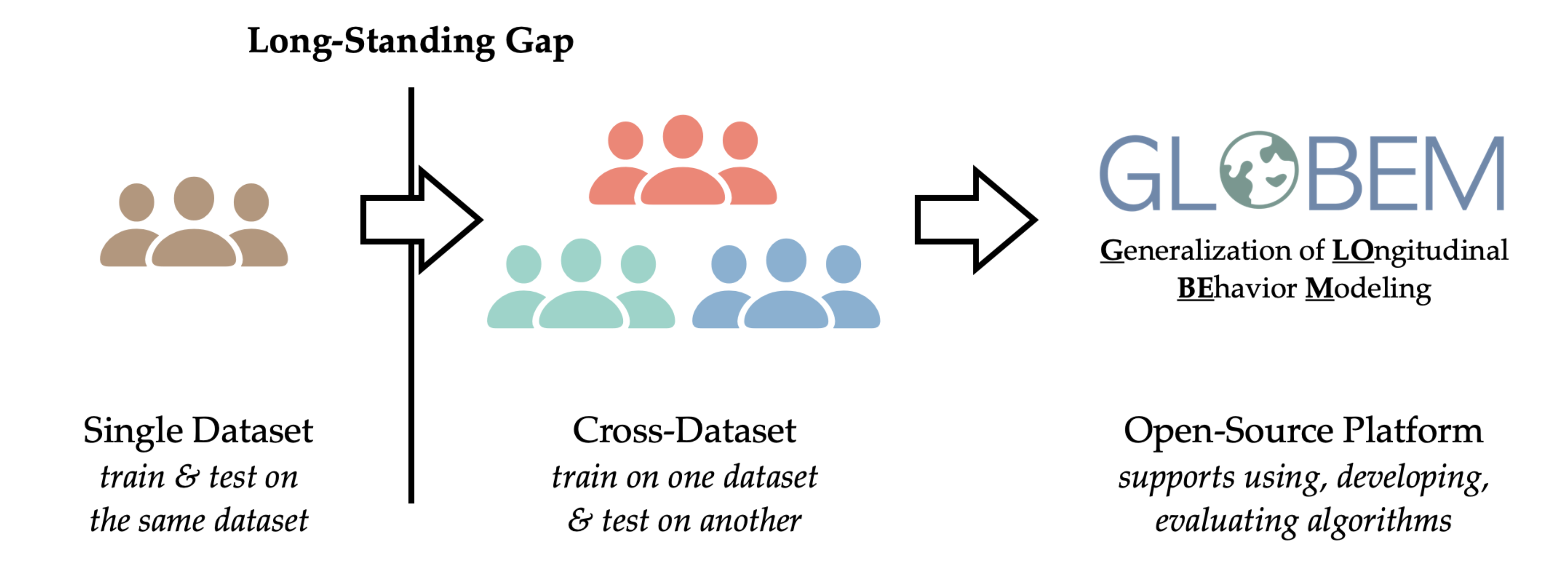@article{xu2022globem,
title={GLOBEM: Cross-Dataset Generalization of Longitudinal Human Behavior Modeling},
author={XU, XUHAI and LIU, XIN and ZHANG, HAN and WANG, WEICHEN and NEPAL, SUBGIYA and KUEHN, KEVIN S and HUCKINS, JEREMY F and MORRIS, MARGARET E and NURIUS, PAULA S and RISKIN, EVEA and others},
year={2022}
}

